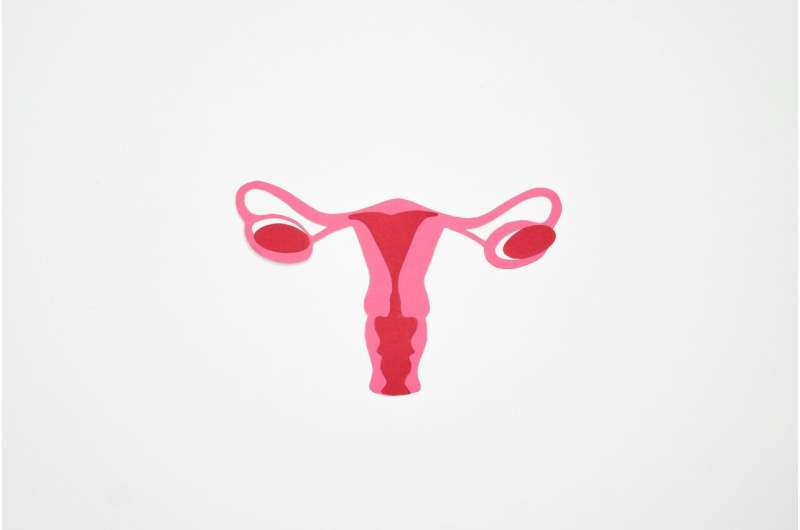This article has been reviewed according to Science X's editorial process and policies. Editors have highlighted the following attributes while ensuring the content's credibility:
fact-checked
trusted source
proofread
Scientists developing at-home swab tests for endometrial, ovarian cancer

Early detection improves treatment outcomes for endometrial and ovarian cancers, yet far too often women are diagnosed in advanced stages of these diseases. Unlike many other cancers, there are no standard screenings for early detection of endometrial and ovarian cancers. The incidence rate for endometrial cancer is expected to rise, driven by environmental factors, obesity and diabetes.
Marina Walther-Antonio, Ph.D., and colleagues at Mayo Clinic's Center for Individualized Medicine are on a mission to catch these cancers early.
Their research dives deep into the microbiome, a community of trillions of microorganisms—including bacteria, fungi and viruses—that influence health and disease. Through their investigations, they have uncovered specific microbial signatures linked to endometrial and ovarian cancers and are working toward developing innovative home swab tests for women to assess their susceptibility.
"Screening the microbiome for early detection may improve patient outcomes," says Dr. Walther-Antonio, also a researcher at the Departments of Surgery and Obstetrics and Gynecology, and the Mayo Clinic Comprehensive Cancer Center.
The team discovered a cluster of 17 bacterial microbes associated with the presence of endometrial cancer, with a "lightning rod" in the group: Porphyromonas somerae.
To validate this connection, they drew parallels between Porphyromonas somerae and its closest relative, which is known to be linked to oral cancer. The team hypothesized that Porphyromonas somerae might play a similarly invasive role in endometrial cancer. After extensive testing, they confirmed the ability of this microbe to invade endometrial cells and alter their function, especially under estrogen exposure—a common risk factor for endometrial cancer.
In their research on ovarian cancer, the team found a distribution of microbes in the reproductive tract of women with the disease. They also revealed changes in the microbiome compositions that are correlated with patient treatment outcomes. These findings may open investigation avenues into applicability of these markers to detecting and predicting treatment response.
According to World Cancer Research Fund International, endometrial cancer ranks as the sixth most common cancer among women globally, with 417,367 new cases and 97,370 deaths reported in 2020. Ovarian cancer follows as the eighth most common, recording 313,959 new cases and 207,252 deaths in the same year.
The Mayo scientists are also collaborating with the Waitematā District Health Board officials on Pacific Islander and Māori populations in New Zealand, which has one of the highest incidences of endometrial cancer globally. Factors such as high obesity rates, a known risk factor, are a likely contributor, but the high incidence rates among younger women remain unresolved.
In the U.S., there is a long-term initiative designed to engage Black women, particularly those who are postmenopausal.
"Black women don't have a higher incidence rate of endometrial cancer, but they have a higher mortality rate and morbidity rates. This is influenced by several factors, including limited access to health care. Symptoms frequently go unrecognized or are mistakenly attributed to other conditions, such as fibroids, which are common among Black women," Dr. Walther-Antonio says.
Through the long-term study, Mayo's scientists hope to engage participants to contribute samples every six months for three years, including vaginal swabs and environmental samples to identify potential risk factors.
Ultimately, Dr. Walther-Antonio and her team hope to use these microbiome signatures to predict and intervene in the development of cancer before it materializes.




















